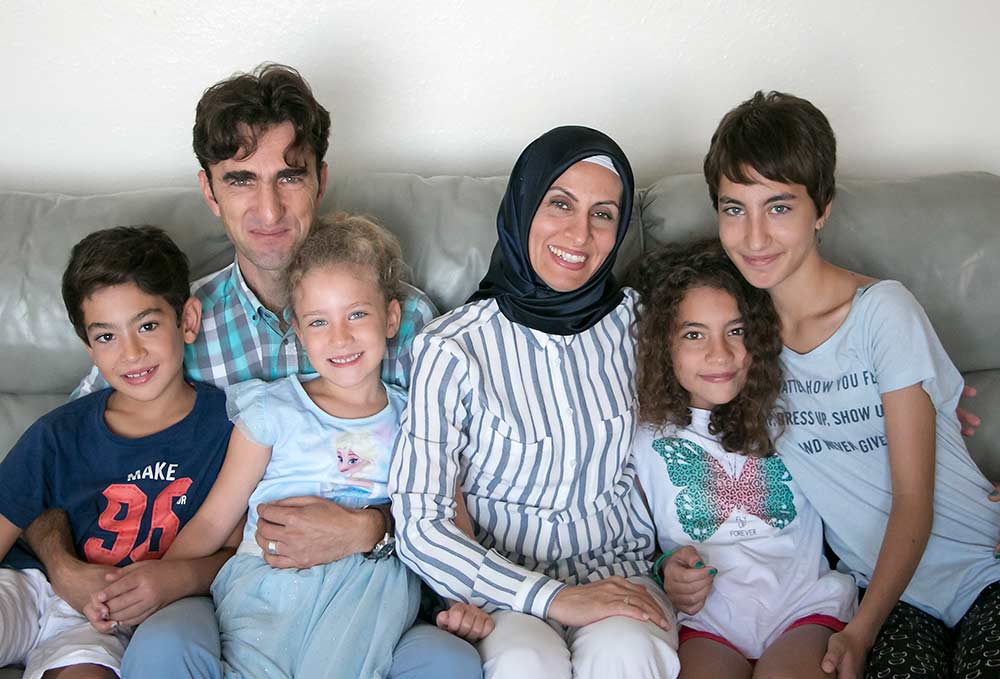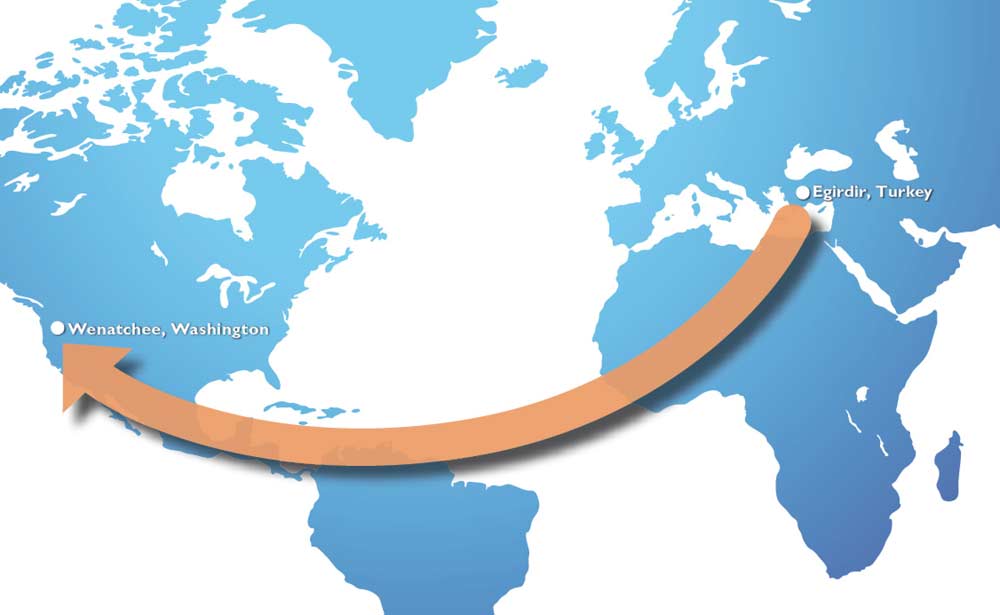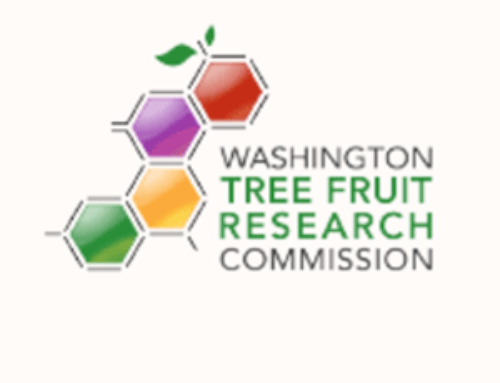
Visiting Turkish fruit breeder Gökhan Öztürk poses with his family at their temporary home in Wenatchee, Washington, near the Washington State University Tree Fruit Research and Extension Center, where he is studying breeding management techniques. His wife, Pinar, is also a fruit researcher in Turkey. Their children range in age from 6 to 17. From left: Erdem, Gökhan, Elif, Pinar, Dilem and Irem. (Ross Courtney/Good Fruit Grower)
One of the first things Turkish fruit breeder Gökhan Öztürk learned to love about Wenatchee, Washington, was the public library.
The number of activities for children amazed his family accustomed to libraries that only have books. He also loves the scenery, the public pool and generous new friends.
One of the things he learned to hate was bureaucracy — for example, the stacks and stacks of paperwork required to sign up his children for school. “There are so many documents here,” he said with a laugh. He isn’t a fan of the tight housing market either.
However, good and bad, Öztürk, 42, and his family of six have settled into their nine-month home while he studies the ins and outs of managing a fruit breeding program from one of the best in the business, Washington State University. His stay is being funded by the Turkish government.
Turkey and its fruit

(Jared Johnson/Good Fruit Grower illustration)
Turkey grows a wide array of fruits, from pomegranate and figs to apples and pears. Archaeologists estimate fruit cultivation in Turkey dates back 4,000 years or more.
Öztürk paints a picture of a Turkish fruit industry modernizing and growing as rapidly as the nation’s overall economy. The country produces about 3.5 million tons of apples per year, about 80 percent of them Red Delicious and Golden Delicious.
Most farmers still use traditional orchard systems on seedlings, but high-density systems with dwarfing Malus rootstocks and newer cultivars are gaining popularity. They don’t export many apples, but they do pears.
Deveci and Santa Maria are the most popular pear cultivars. And just like in America, Turkish farms struggle to find workers in a labor pool enamored with college education.
Up until the 2000s, pome fruit breeding studies in Turkey were limited to wild strains, but researchers have since broadened their focus to include controlled hybrids.
The search for disease resistance — scab disease and fire blight are big concerns — and dwarfing characteristics are an integral part of Turkey’s future economic development plans, Öztürk said. In the past 10 years, government financial support has been generous for both farmers modernizing their architecture and for researchers exploring new ideas.
“Nowadays, if you prepare a good project … you can find funding,” he said.
Öztürk works in the pome fruit plant breeding and genetics section of the Fruit Research Institute in Egirdir, a city in the southwestern Turkish province of Isparta. It’s usually referred to by its Turkish acronym MAREM, one of 52 research institutes under the General Directorate of Agriculture Research and Policy, or TAGEM.
The Turkish Ministry of Agriculture sent him to the United States mostly to learn detailed management techniques from WSU’s fruit breeding program, led by Kate Evans at the Tree Fruit Research and Extension Center, and he is grateful for the opportunity, he said.
Fruit breeding studies are so long-term that one mistake now may not show up until 15 or 20 years later. “Management techniques are very important,” he said. He also aims to glean some knowledge from her experience using genetic markers in breeding.
Öztürk said he hopes his visit may sow seeds for future collaboration.
Evans likes the idea of partnerships down the road but also believes she can learn from him now, especially from his pear work.
“He has been able to share some great ideas with us about how to manage some aspects of the new pear rootstock program here, especially in terms of logistics and methods,” Evans said. “We are also very lucky to have him here to help evaluate the first year’s seedlings. It would be good to think that we can continue to collaborate through discussion of the data relating to these seedlings as they mature and possibly host students or some of Gökhan’s colleagues in the future to help with further evaluation.” •
‘Big vacation’
Turkish fruit breeder Gökhan Öztürk is in Wenatchee, Washington, to learn about Washington State University’s pome fruit breeding program, and his family came along.
His wife, Pinar, also works in the fruit industry as a researcher, but has taken unpaid leave to join him, calling it a “big vacation” with a smile.
She studies the economic side of the business and she is impressed with the marketing structure of the state’s fruit industry. In Turkey, growers mostly fend for themselves. Their four children, ages 6 to 17, are attending Wenatchee public schools.
The Öztürks have made fast friends. One Wenatchee family has offered them dinner, swimming and help for the kids learning English.
In short, the whole family is happy to be here and enjoy learning about different cultures, Pinar said.
– by Ross Courtney






Leave A Comment